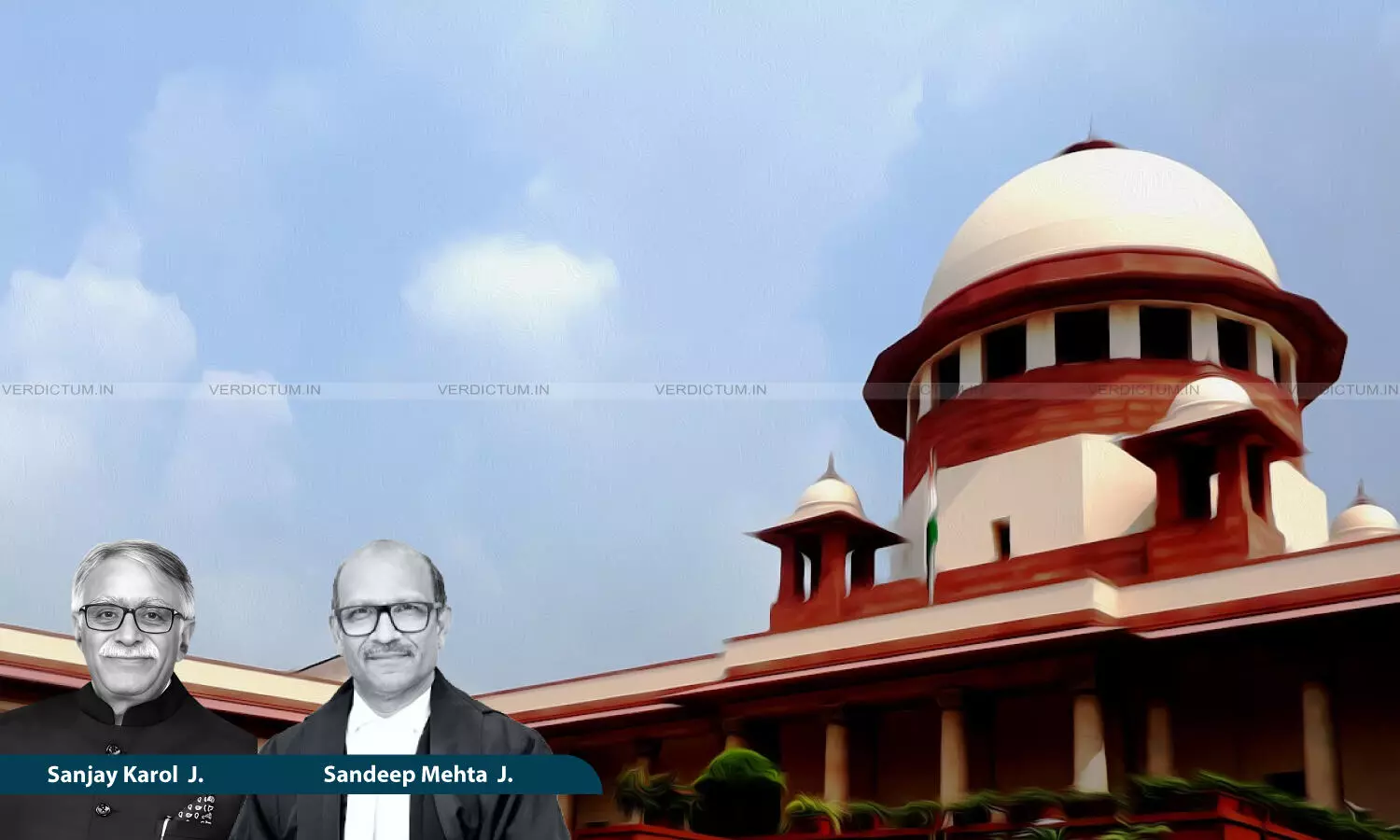
Justice Sanjay Karol, Justice Sandeep Mehta, Supreme Court
No Vicarious Liability Of Officers Or Directors Under IPC Without Specific Allegations: Supreme Court Quashes Defamation Proceedings Against Bank Officials
 |
|The Supreme Court held that in the absence of any statutory provision creating vicarious liability under the IPC, directors and officers of a company cannot be prosecuted merely by virtue of their designation without clear allegations of individual involvement.
The Supreme Court has quashed criminal defamation proceedings against senior officials of Bank of Baroda, observing that mere designation or official status is not sufficient to sustain prosecution under Sections 500 and 501 of the Indian Penal Code. The Court ruled that the complainant must produce material indicating the specific role of the officer in the commission of the alleged offence.
A Bench comprising Justice Sanjay Karol and Justice Sandeep Mehta, while deciding the appeal, observed that “There is no concept of vicarious liability of the officers or directors for the offences under the IPC as is provided under special Penal Statutes such as the Negotiable Instruments Act, 1881, the Food Safety and Standards Act, 2006, the Drugs and Cosmetics Act, 1940, etc. which specifically creates such liability.”
Advocate Pramod B. Agarwala appeared for the appellants, while no appearance was entered on behalf of the respondent.
Background
The case arose from a notice issued by Bank of Baroda in June 2007 under the SARFAESI Act against a borrower, which, due to a clerical error, incorrectly reflected the outstanding dues. A clarification letter was subsequently issued, correcting the mistake. Despite the correction, a criminal complaint was filed alleging defamation, naming senior bank officials as accused.
The Magistrate issued a process against the officers, and the High Court later declined to quash the complaint, holding that the officials were in charge of the affairs of the Bank. Aggrieved by this, the officers approached the Supreme Court.
Court’s Observations
The Court held that prosecution of directors or officers under the IPC cannot proceed based on bald assertions of responsibility without foundational facts showing their active participation or culpability. It clarified that: “Before any officer of a Bank or a body corporate can be prosecuted for an offence under the IPC on the allegation of having acted on behalf of the institution, it is incumbent upon the complainant to produce unimpeachable material indicating the precise role of the officer in the commission of the alleged offence.”
The Court further observed that the Bank itself was not arrayed as an accused in the complaint, and that proceedings only against individual officers, without impleading the company, could not be sustained. The Bench reiterated that the law does not permit automatic prosecution of directors or officers merely because of their designation or position.
The Court also noted that the officials had acted within the scope of their statutory duties under the SARFAESI Act and were protected by Section 32 of the Act, which shields officers from prosecution for actions done in good faith.
Conclusion
Holding that continuation of criminal proceedings against the bank officials would amount to misuse of judicial process, the Supreme Court allowed the appeals and quashed the defamation complaints pending before the Magistrates’ Courts in Maharashtra.
Cause Title: Anil Khandelwal & Ors. v. Phoenix India & Anr. (Neutral Citation: 2025 INSC 1069)
Appearances
Appellant: Advocate Pramod B. Agarwala
Respondents: Advocates Aaditya Aniruddha Pande, AOR, Siddharth Dharmadhikari, Shrirang B. Varma, Bharat Bagla, Sourav Singh, Aditya Krishna, Adarsh Dubey, Chitransha Singh Sikarwar